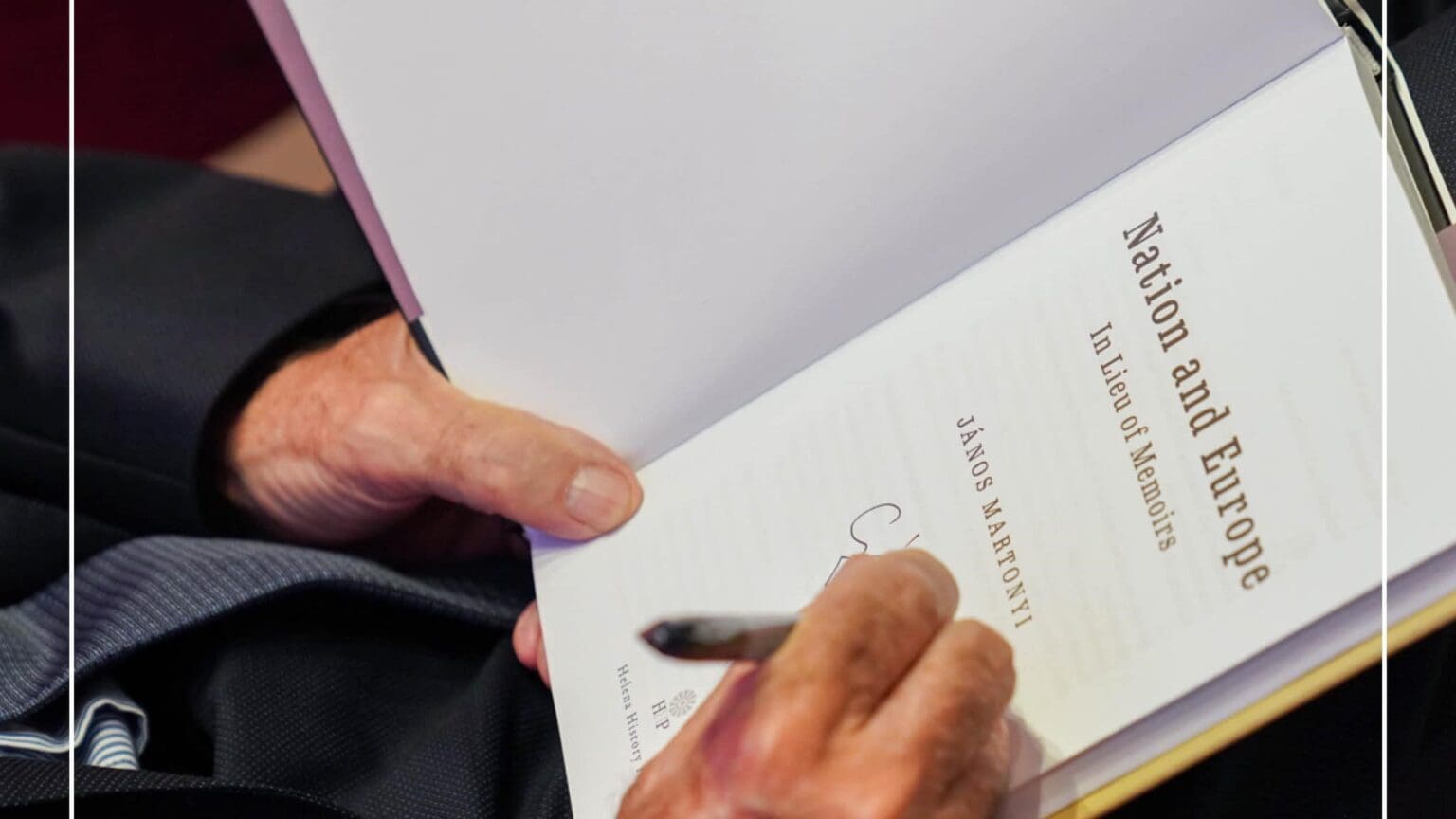
Simplistic labels like ‘liberal’ or ‘conservative’ for a rules-based, nations-centric approach are to be rejected—one can learn from former foreign minister of Hungary János Martini’s new English language book Nation and Europe: In Lieu of Memoirs which was presented to the audience on 18 September at Danube Institute.

According to Áder, a viable solution in preventing a global climate disaster can only be reached through an agreement involving the G20 nations, wherein the preferred and sanctioned activities are outlined. He stressed the need for a well-monitored system that prioritizes long-term sustainability over competitive advantage.
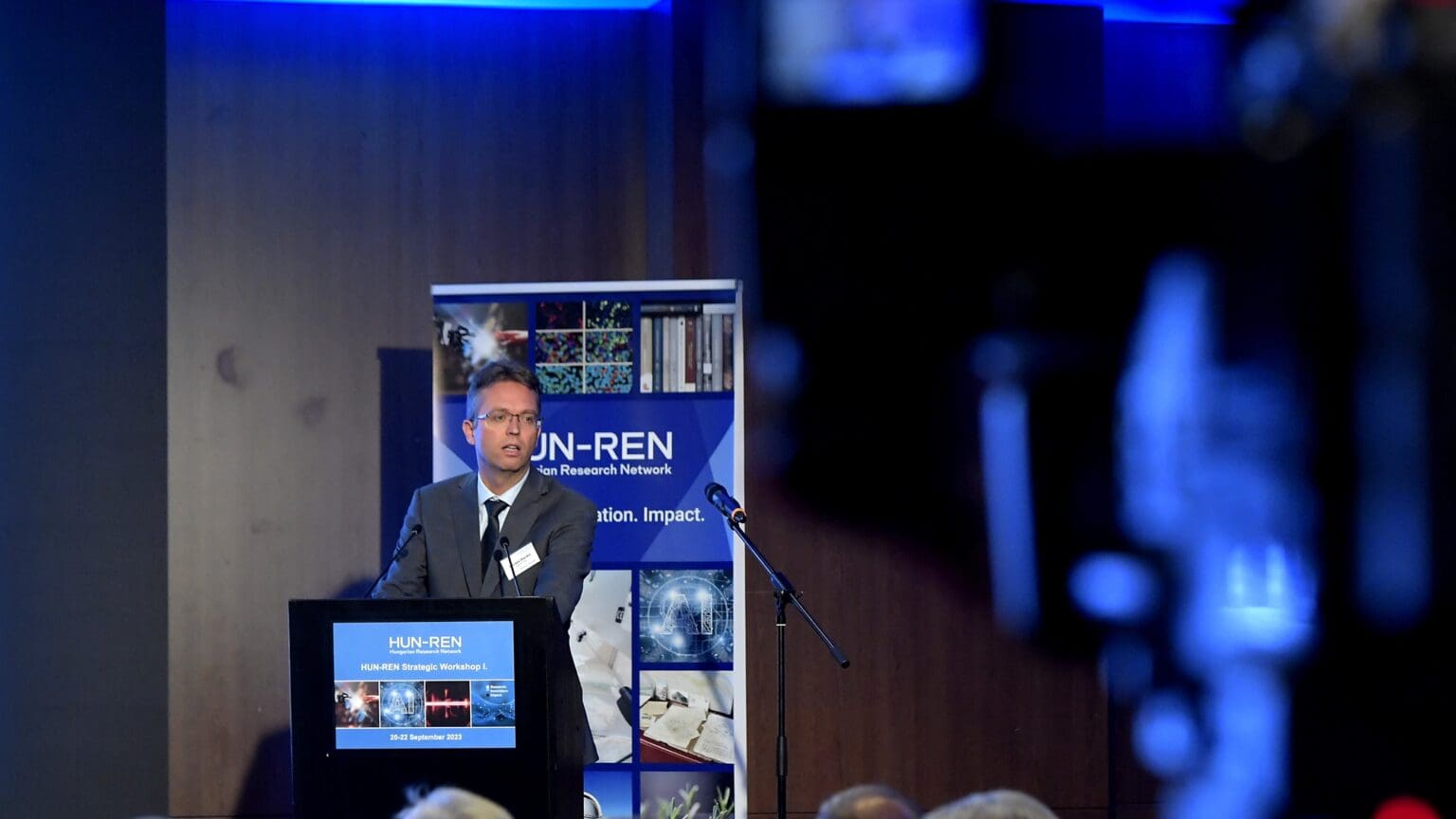
At the event, President of the Hungarian Research Network Balázs Gulyás spoke about how this inaugural scientific workshop aims to be the flagship of the John von Neumann Programme. The plan is to organize international conferences like this every three months.
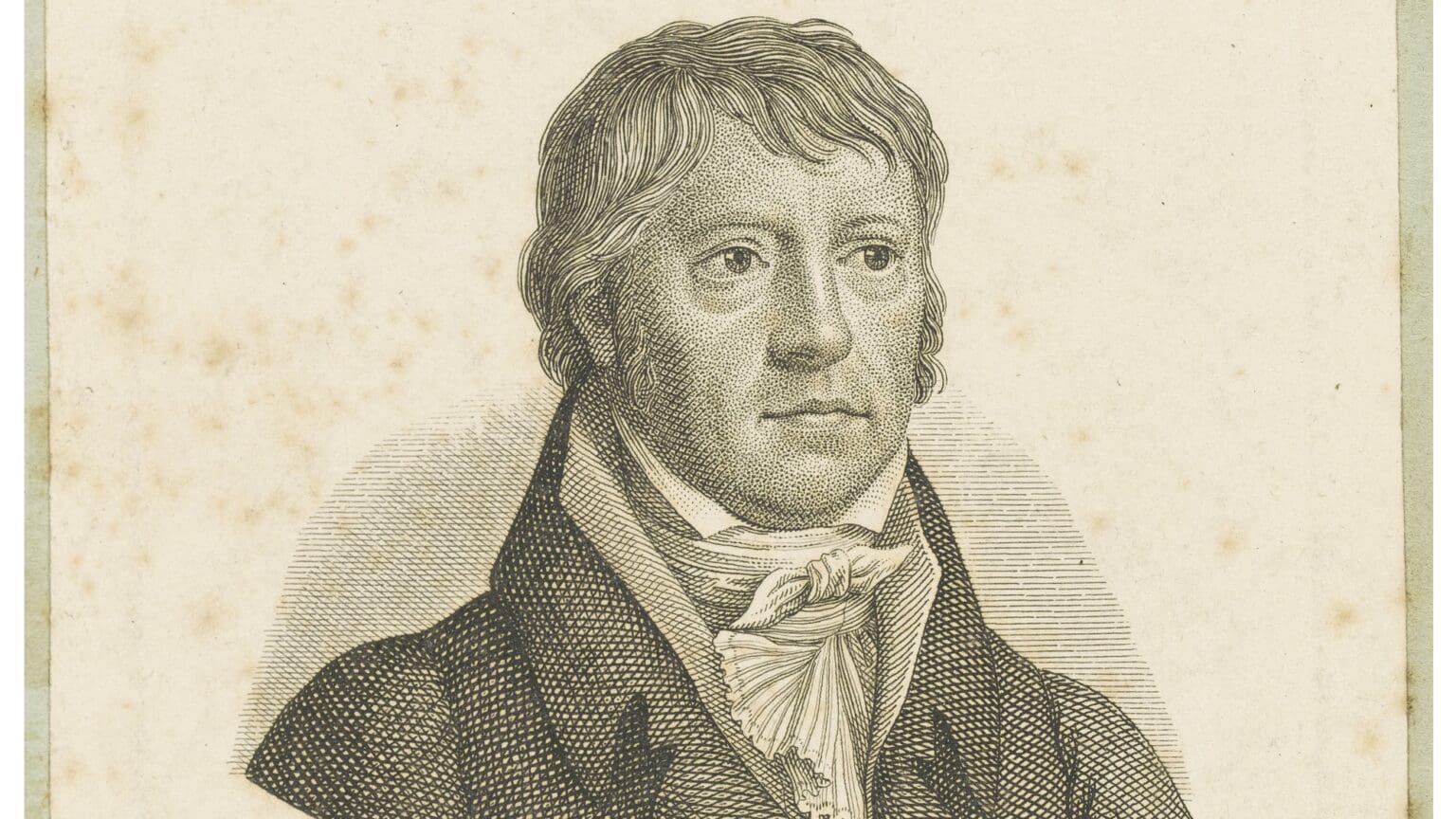
‘Nachtmann argues that due to the important role the state had in Hegel’s thinking, it can be described as having both right-wing and left-wing components. It, however, stands in stark opposition to liberalism.
For liberals, the individual is a phenomenon standing alone by itself, envisioned as isolated. However, for Hegel, individuals only existed as part of the community, family, and nation.’

The Milestone Institute recently hosted a public forum in collaboration with the Hungarian Youth Association, to present their respective findings on whether high-performing Hungarian students return home after finishing their studies abroad, as well as data on the career and mobility patterns of former Milestone Institute students.

In his introduction, Hölvényi emphasized that in recent years, the COVID-19 pandemic and wars have weakened people’s faith and religiosity. Rebuilding and strengthening faith will take many years of work, but change must always start from within, he noted.

The Budapest Treaty was a bilateral accord between Hungary and Czechoslovakia, aiming to establish the contractual framework for the construction of a complex waterworks system along the Hungarian–Czechoslovak section of the Danube. After Hungary unilaterally annulled the treaty signed on 16 September 1977, a complex dispute that has not been completely resolved to this day ensued.

Blue sky above, turquoise lake below, and between them, on the horizon, plenty of white sails gleaming in the distance. This is the image of Lake Balaton that millions of Hungarians have seen for generations, and which always draws them back to the shores of the ‘Hungarian Sea’.
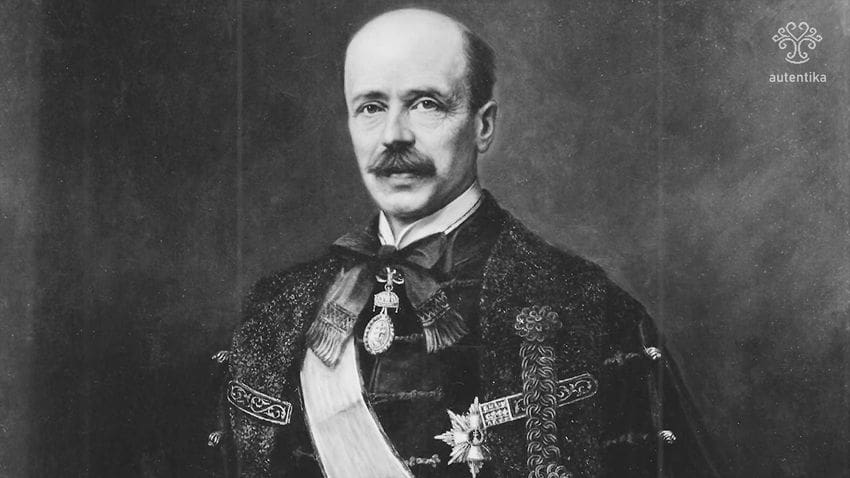
István Bethlen was a dominant figure in early twentieth-century Hungarian politics. Contemporary conservatives have much to learn from him regarding consolidation, pragmatism, and opposing radicalism.

Despite all the uncertainties, the chronicle written by Master P., or as he is known to many because of the obscurity of his person since its discovery, Anonymus, has been one of the most important documents of the search for Hungarian historical consciousness and identity.
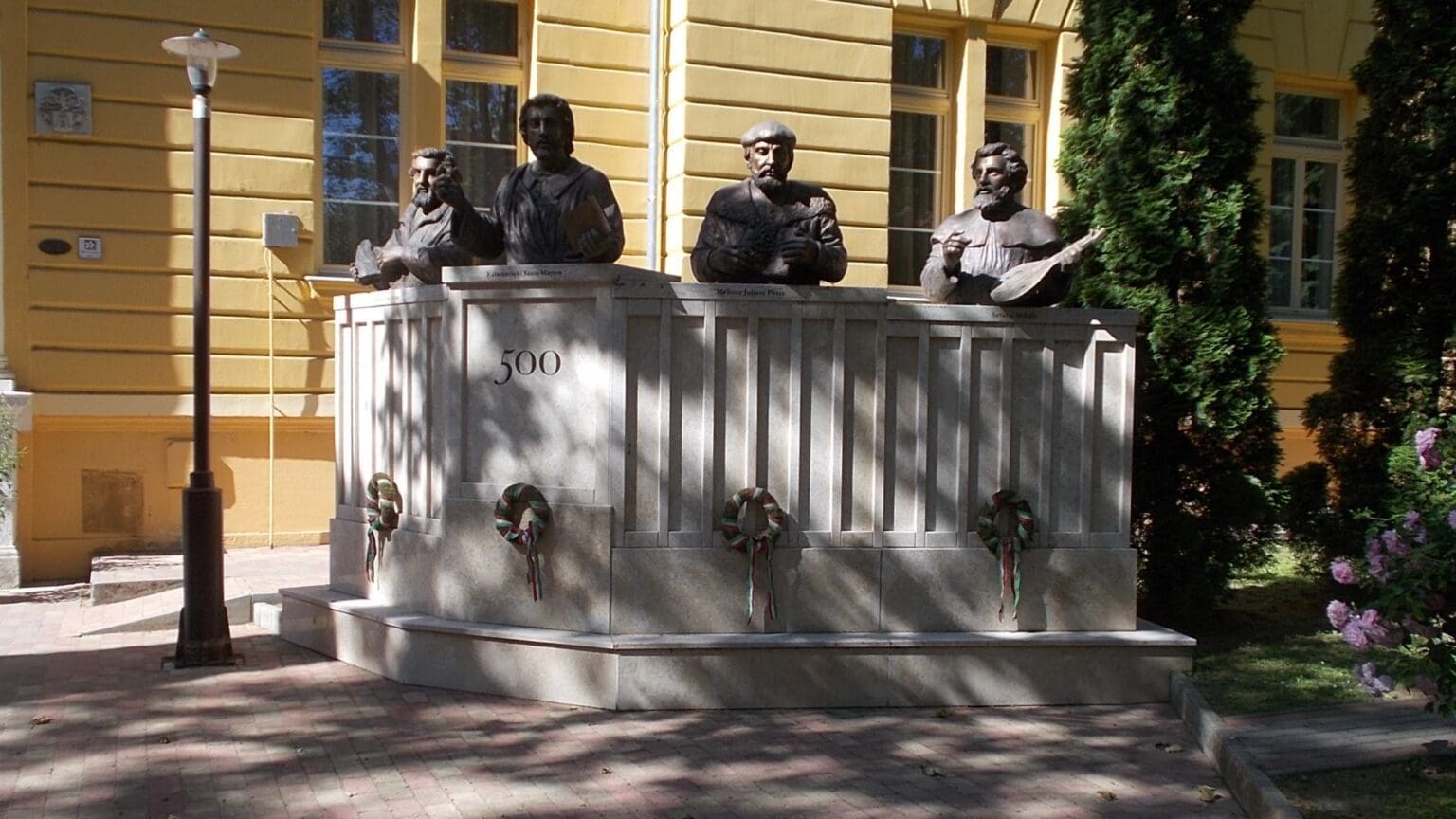
The question of what garments Protestant preachers should wear was a constant topic of the synods held in the 1500s, and all the articles, canons and law books attempted to make it unequivocally clear that pastors should perform their duties in ‘decent, regular, modest’ clothing.
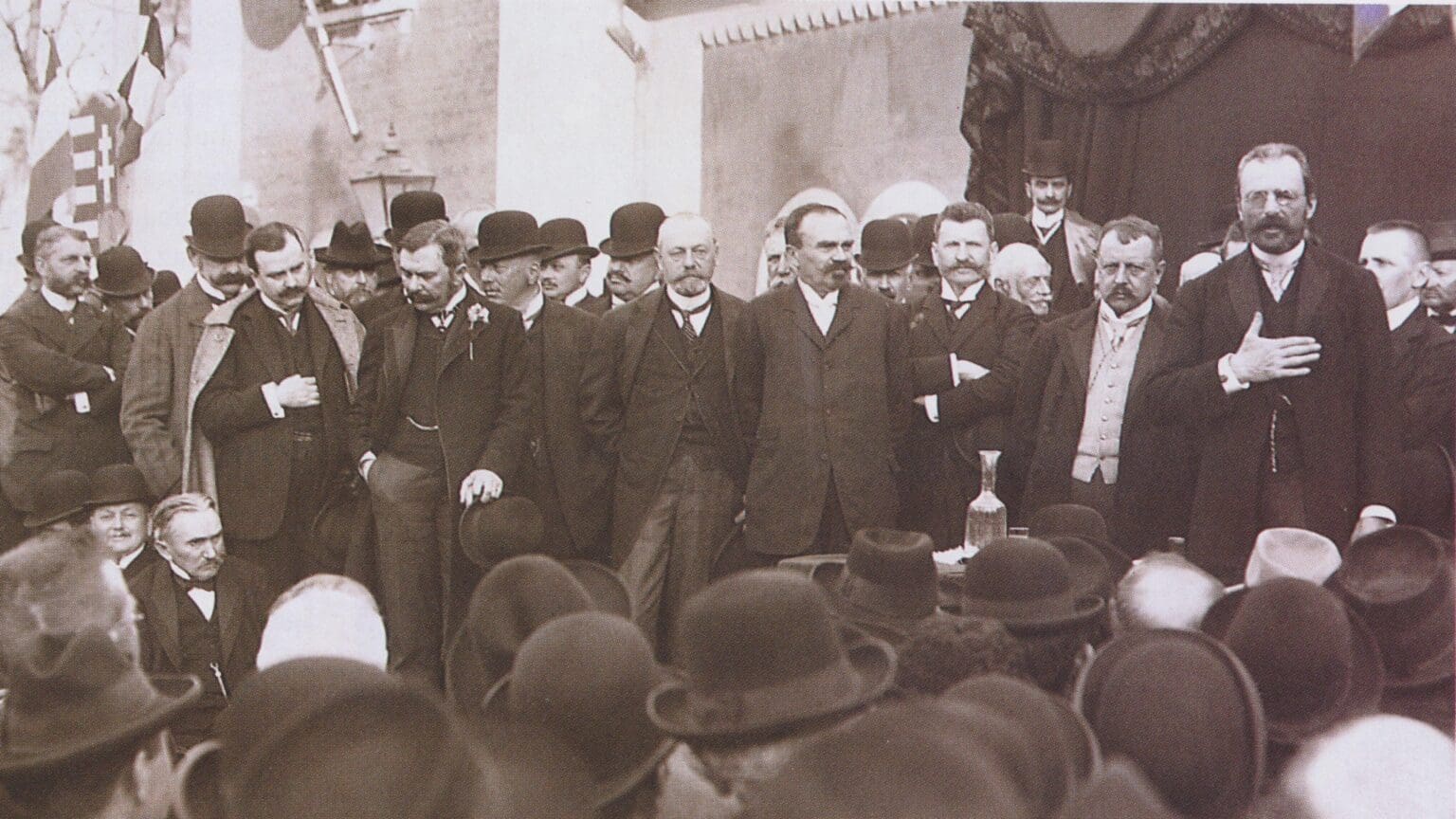
Count István Tisza is still blamed by liberal and left-wing historiographers for Hungary entering WWI, despite clear evidence of his anti-war stance. It is rather anachronistic to hold Tisza to democratic standards that did not exist at the time and with the wisdom of hindsight: the knowledge of how the war ended.
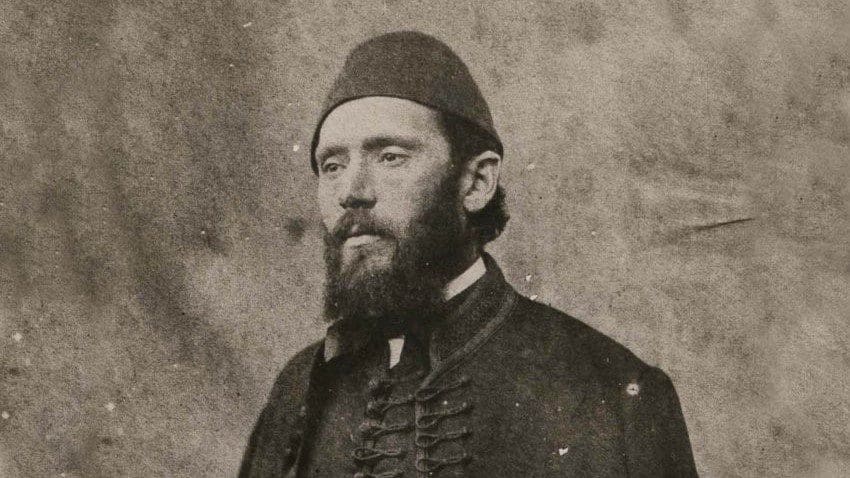
Ármin Vámbéry was an internationally respected scholar, traveller, linguist, and ethnographer who pioneered in the research of the Orient. He is commemorated for his unceasing will, lifelong dedication to science, and profound contributions to Middle Eastern studies.
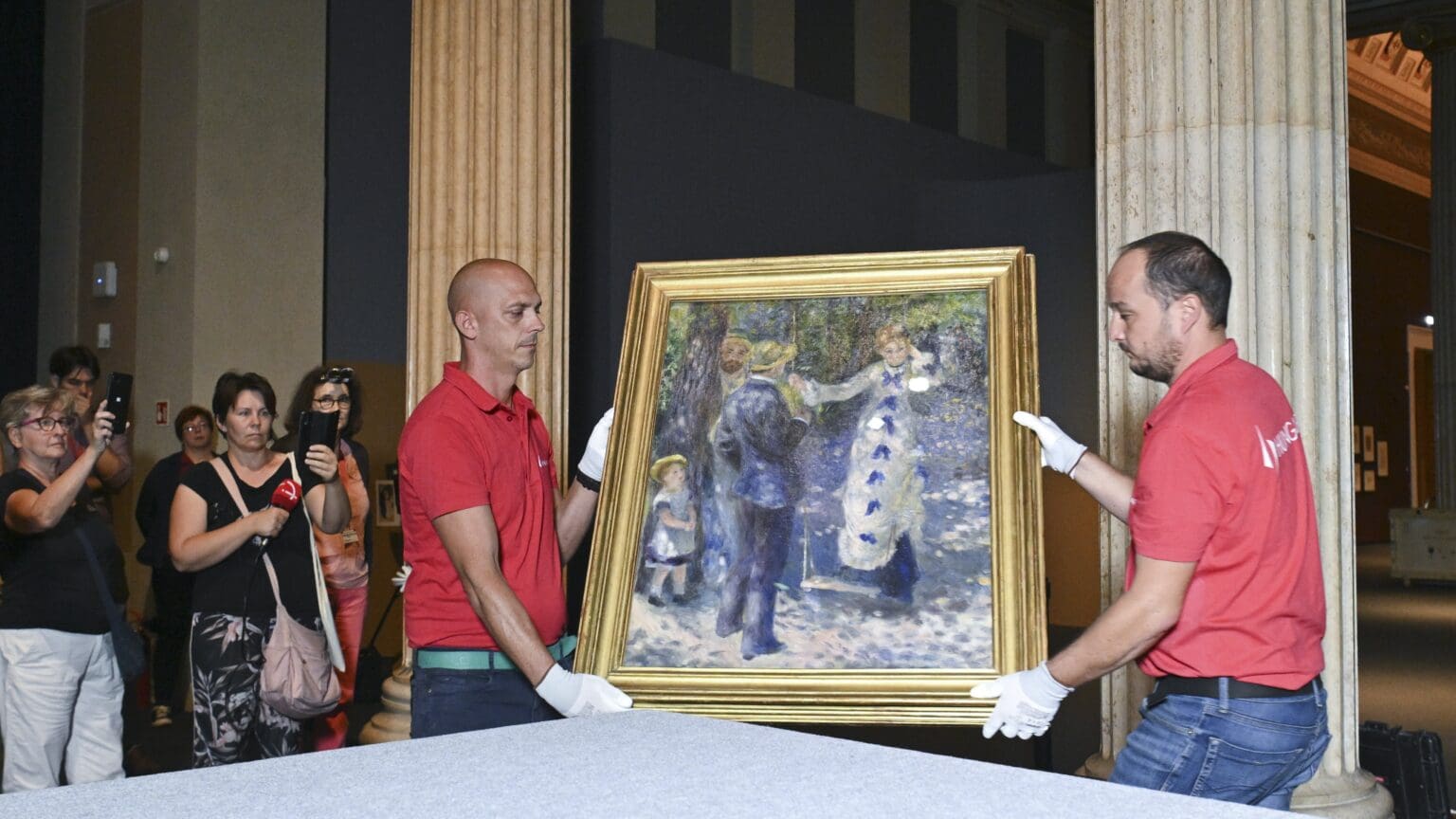
Around 70 works from over 20 public collections of the great French painter Pierre-Auguste Renoir will be on display at the Museum of Fine Arts from 22 September 2023 until 7 January 2024.
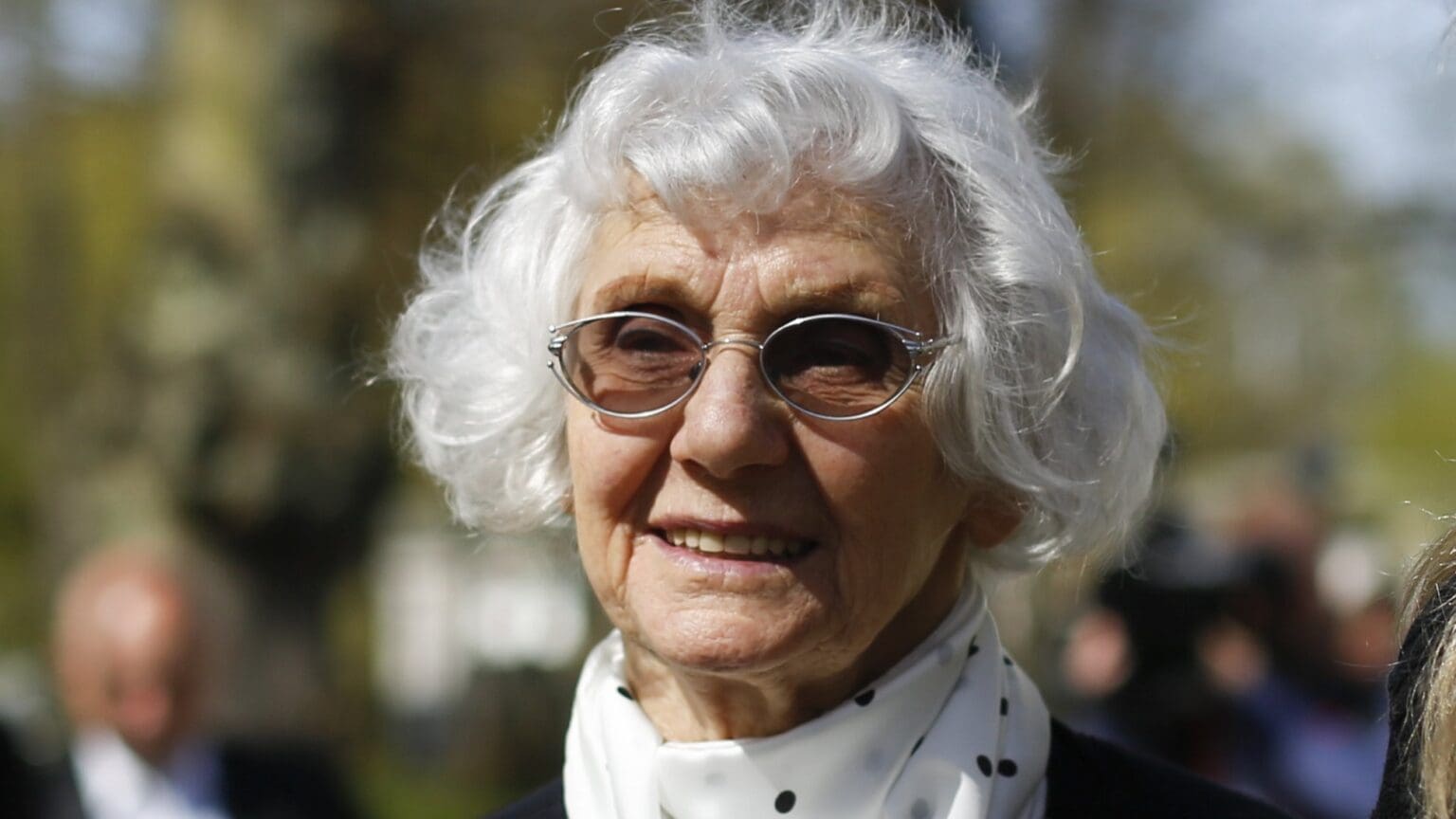
Éva Fahidi, a Holocaust survivor and witness of the greatest tragedies of the 20th century, was a restless artist who even in her 90s was dedicated to teaching the lessons of the past through her books and performances.

According to the 2023 World Watch List compiled by Open Doors, Pakistan is the seventh most dangerous country for Christians in the world. There are around 4.2 million Christians in Pakistan—only 1.8 per cent of the country’s population of more than 229 million people. Pakistani Christians are considered second-class citizens and are discriminated against in every public and private life aspect.
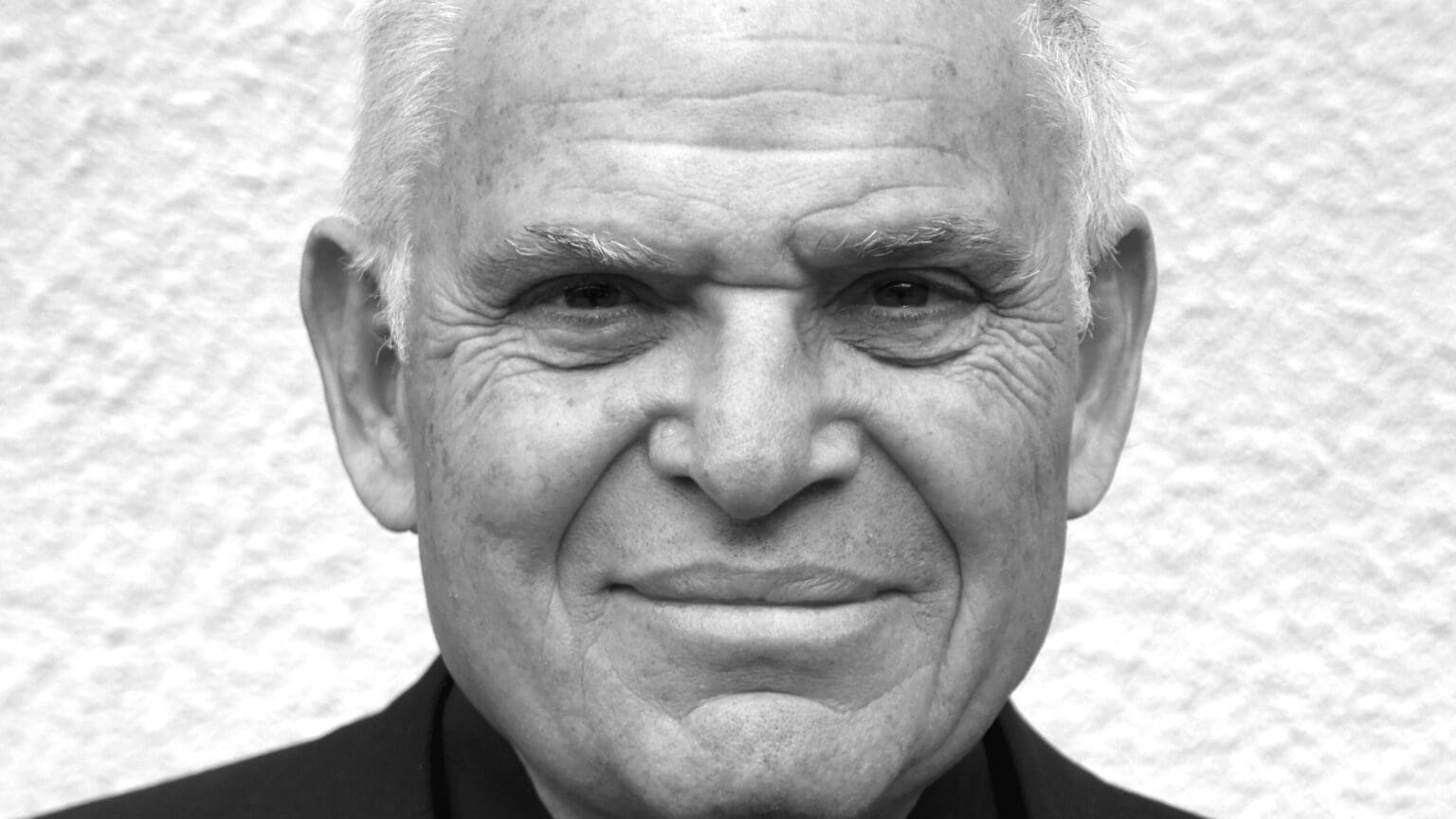
Edward Nicolae Luttwak is an American strategist of Transylvanian extraction whose works give a valuable insight into the logic of confrontation between adversaries. His framework is useful for understanding the dynamics of any conflict, be it a clash between two palaeolithic tribes, a full-scale war or a street fight.

Hungary is entering an age where the space economy holds significant importance. Thankfully, it is welcoming the new era with a solid and well-functioning foundation, consisting of numerous private companies ready to engage in space exploration, as indicated by the Hungarian Space Kaleidoscope report.
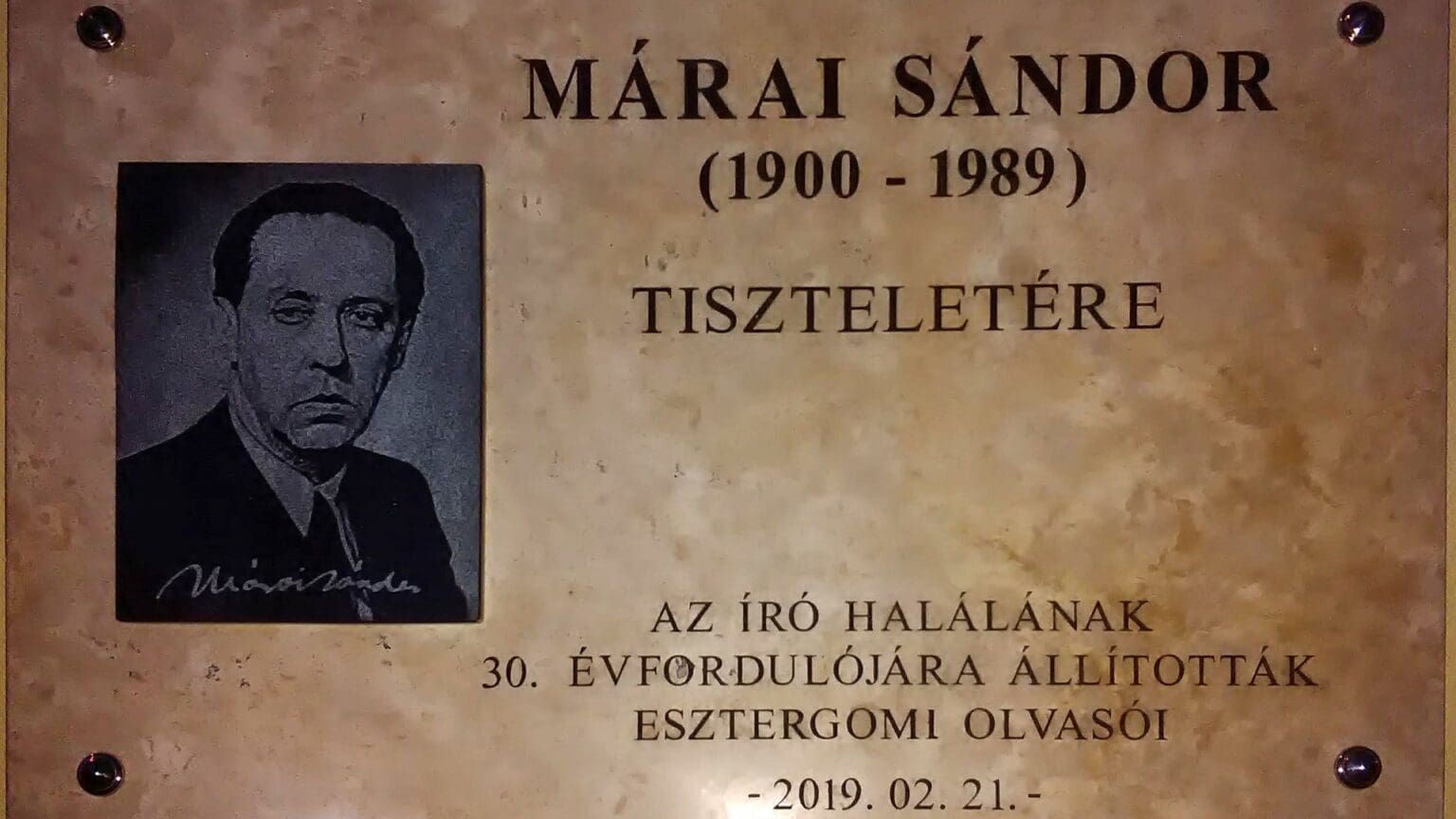
The life and works of Sándor Márai, a prolific Hungarian writer and intellectual, serve as an example for conservatives everywhere, urging them to protect their nationhood and oppose totalitarian ideologies.

The recent article by Máté Sibrányi and Gábor Virágos in the Kommentár magazine outlines the importance of preserving our architectural heritage, and charting more of our church ruins. According to the authors, these ruins are part of our Christian heritage, and therefore deserve more attention.
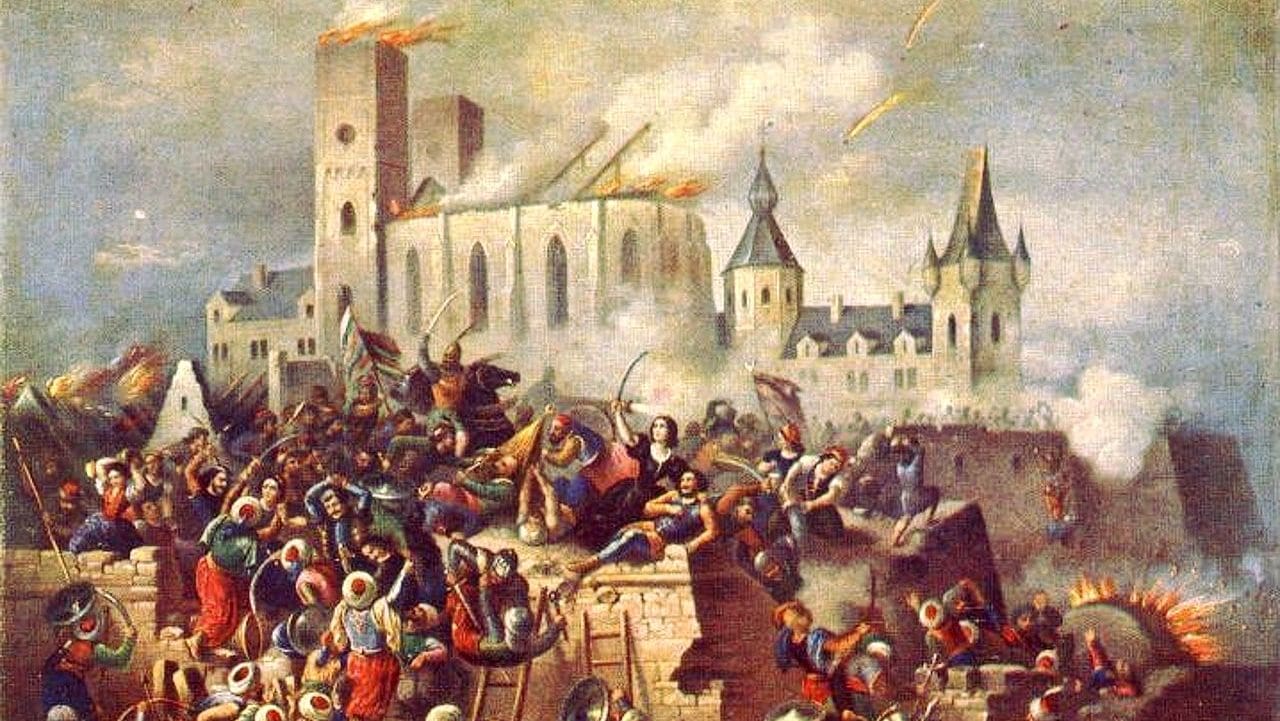
For generations, the heroic deeds of the defenders of the Eger Castle have given the Hungarian people strength and fortitude. Although the area under Ottoman occupation expanded and, in the following years, the Sultan managed to reassuringly stabilize his presence in the Carpathian Basin, our predecessors could draw strength from the example of Dobó and his army in later years.
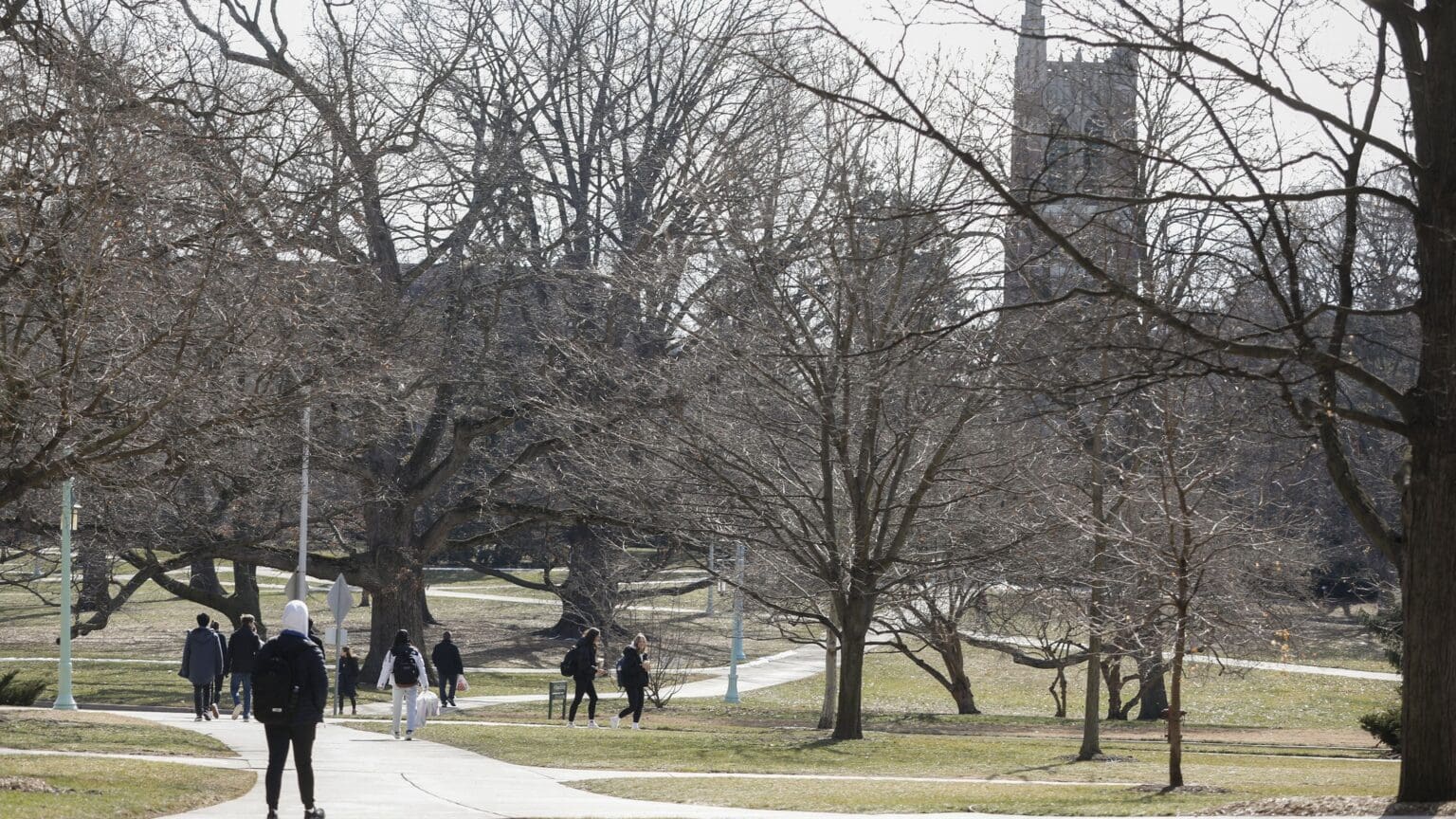
Michigan State University law professor Adam Candeub recently gave an interview to the Hungarian periodical Mandiner, in which he touched on a wide array of important issues, such as immigration, preserving cultural values, and the European Union trying to pressure Hungary into giving up its sovereignty.

It is not all bad when the weather no longer allows you to spend every minute of your time outdoors anymore—in this article, Magyar Krónika has collected nine great exhibitions that are worth a trip even to the further corners of the country.

The director of the Hungarian State Opera House, Szilveszter Ókovács, published a scathing response to the depiction by the Regensburg Theatre of a soon-to-premiere Péter Eötvös opera as a ‘bitter parable of the Orbán regime’.

The young Hungarian supertalent beat World Cup-winning Argentine goalkeeper Emiliano Martínez with a shot from the edge of the area after a corner, giving the lead to Liverpool. The game ended in a 3–0 victory for the Reds against Aston Villa. This was the first time a Hungarian player scored in the English Premier League in over a decade.
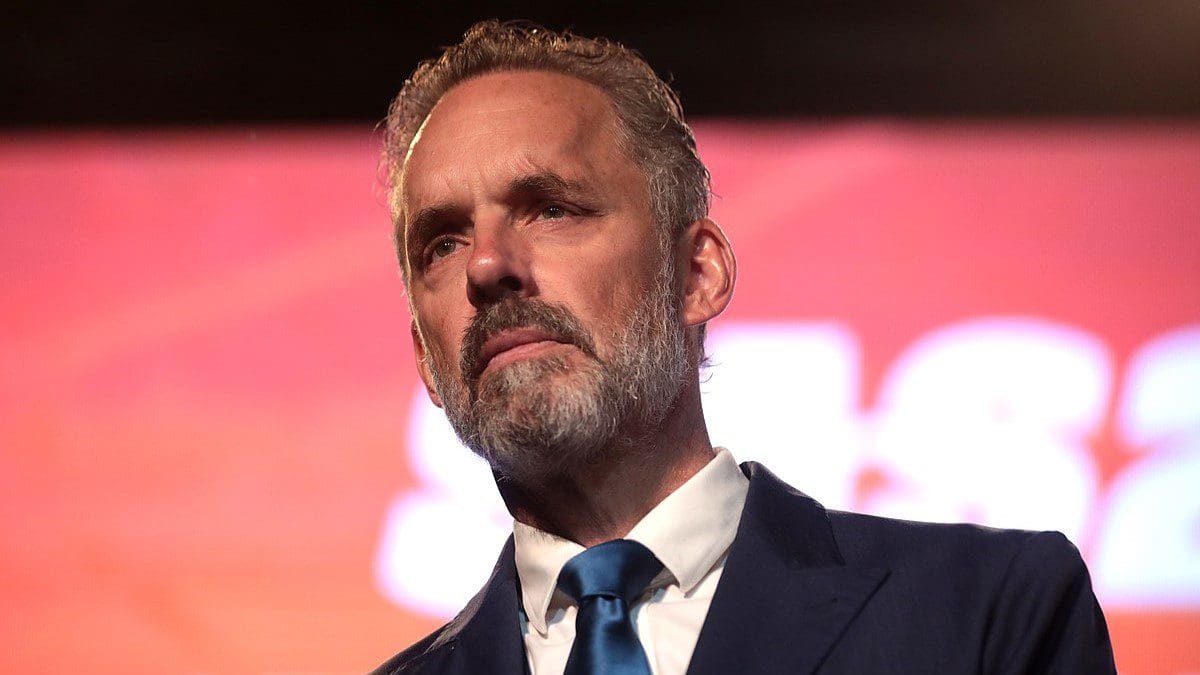
On 23 August, the Ontario Divisional Court dismissed Dr Peterson’s legal complaint against the College of Psychologists of Ontario; therefore, he is forced to comply with the demands of the Ontario College of Psychologists (OCP), which includes going through a so-called ‘specified continuing education or remedial program.’ In a Fox News interview, the famous clinical psychologist recently said that he will comply with the order but will publicize his entire experience so the public could ‘decide for themselves’ about it.

Regarding their first product, beer mash granola, the founder and chief executive of the upcycling enterprise Ételmentő explained that beer mash, a by-product of brewing, was traditionally used as animal feed, and today it is sometimes discarded. However, the company she founded transforms it into a breakfast cereal rich in fibre, protein, and vitamin B.
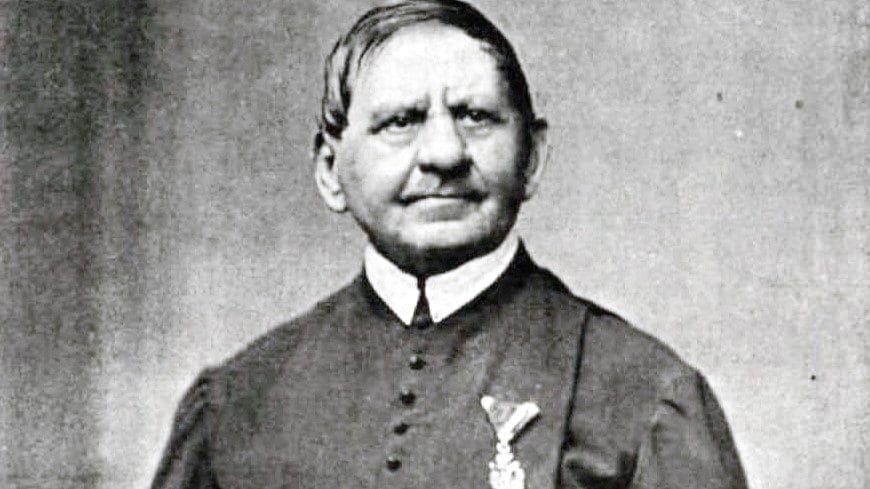
Else then a faithful Catholic and an exceptional scientist, Jedlik was also an ardent patriot. Even prior to the enactment of the law that established the Hungarian language as the language of public education, he extensively used Hungarian during his lectures, and Hungarian technical terms in his scientific work, enriching the Hungarian language with a new scientific vocabulary.

Wine and sparkling wine consumption is declining in Europe, but in Hungary, it is fashionable to consume sparkling wine, and the industry is on the rise.
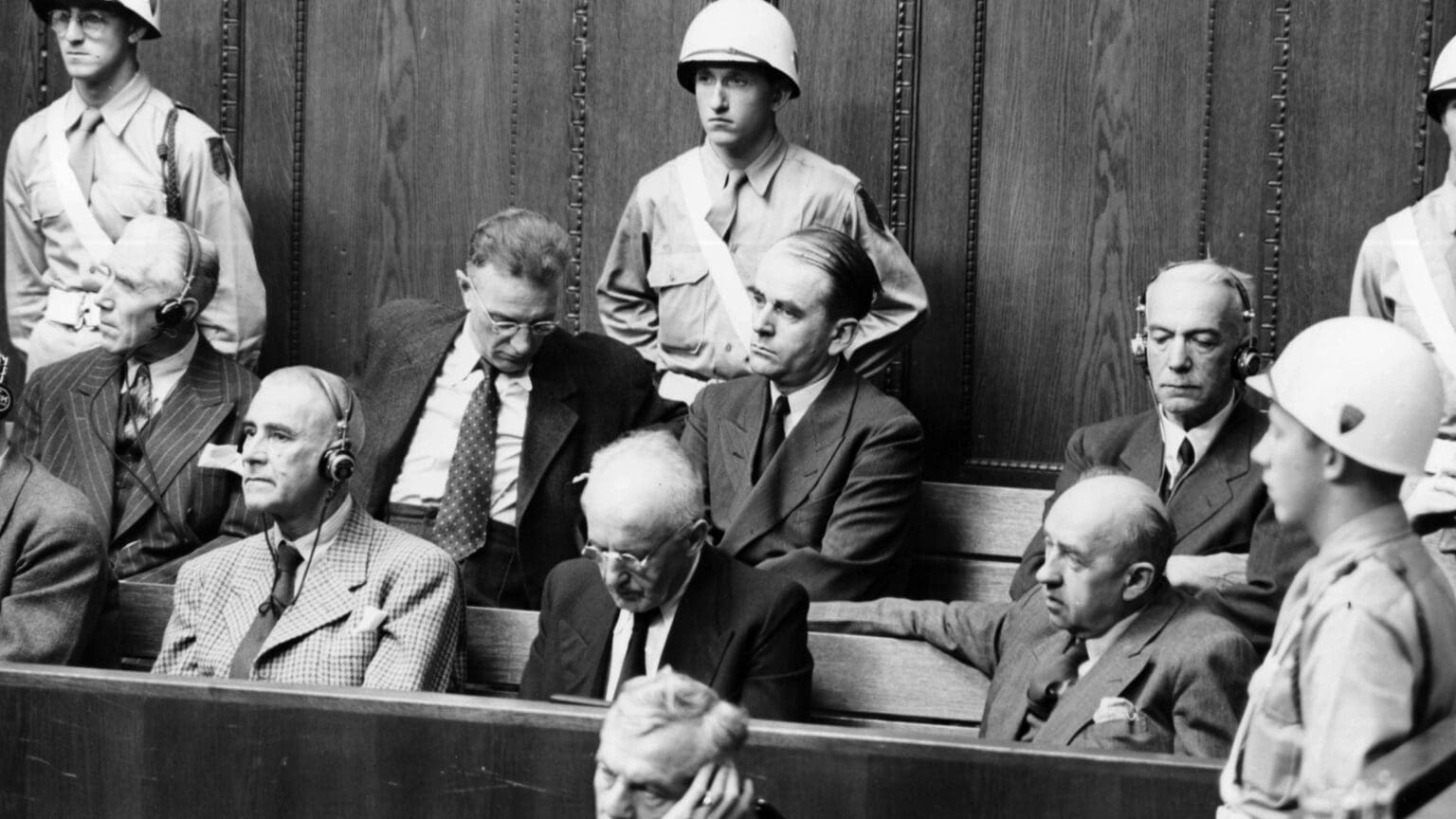
While resistance to Hitler and Nazism is widely researched and celebrated, those who opposed National Socialism from the right are often forgotten. Zoltán Pető therefore attempts to shed light on a lesser-known chapter of anti-Nazi resistance.